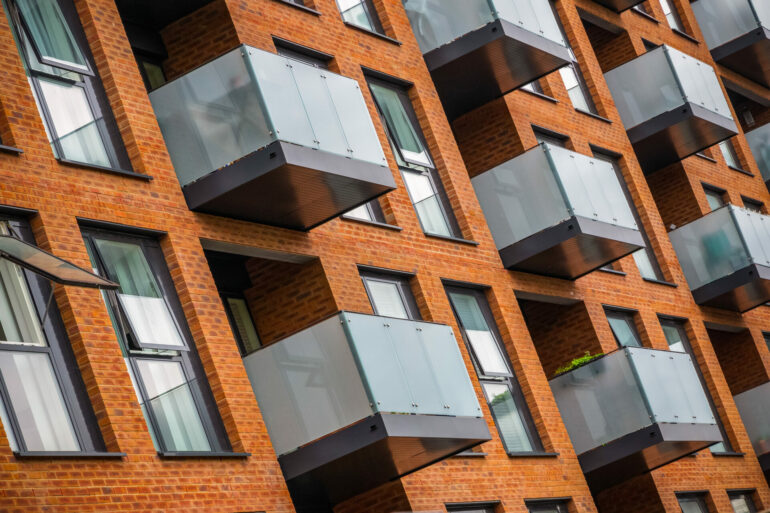Urgent action is needed from the Government to stop a collapse in London’s housing delivery, according to a report from the Home Builders Federation (HBF).
The study found that completions and planning approvals for new homes in the capital dropped sharply, with just 30,000 homes finished in the year to June 2025.
That was down 12% compared to the previous year and well below the peak in 2019/20.
Planning permissions fell to their lowest since 2006, with only 966 projects approved in 12 months.
The number of new building sites starting dropped by 38% and London’s share of national housing delivery shrank from 20% to 15% over the past decade.
London was set a target of 88,000 new homes a year, but current output would have needed to more than double to meet that.
Both the Government and the Mayor of London were warned that their targets for new homes would be out of reach without urgent changes.
The report also found that a first-time buyer (FTB) would have had to save half their spare income for over 13 years to afford a deposit, with average deposits nearly seven times annual income after bills.
The house price-to-earnings ratio in London stood at 11, compared to 7.7 nationally.
The average cost of a first home was 17 times the net annual salary of a 22 to 29-year-old.
Only 15% of FTBs managed to buy in London last year, compared to 25% 10 years ago.
The share of households renting privately in the capital more than doubled in 20 years, while those with a mortgage dropped from 39% to 25%.
The report also highlighted delays in the planning system as a major barrier.
The London Plan contained 88 separate residential policies, adding time and cost for developers.
The Building Safety Regulator caused further delays, especially for higher-rise schemes, with nearly 10,000 homes stuck in the Gateway 2 process for over six months.
Requirements such as dual staircases, carbon offset charges, and new levies made many apartment schemes financially unviable.
London’s 35% affordable housing requirement also held back developments, with few schemes able to meet the threshold.
A lack of registered providers willing to take on Section 106 units compounded delays.
Developers were forced into lengthy viability negotiations, slowing progress further.
The lack of support for FTBs made things worse as only the top 30% of earners could afford to buy a property, according to data.
The report suggested that a new equity loan scheme could have unlocked 17,500 new homes and helped over 90,000 people into home ownership in five years.
Brownfield development was also at risk due to high clean-up costs and extra policy requirements like Biodiversity Net Gain and changes to landfill tax.
The HBF called on the Mayor to speed up the review of green belt land and lower the affordable housing threshold to 25% to get stalled schemes moving.
The report also said there should be a simpler London Plan, with local energy policies matched to national rules and smaller schemes exempt from some requirements.
The federation also called for the Government to bring back a targeted homeownership scheme and scrap the Building Safety Levy.
Other actions needed included speeding up Section 106 agreements and fixing electrical capacity problems.
Neil Jefferson, CEO of the Home Builders Federation, said: “The findings of Mind the Gap should be a major wake-up call for Government and the Mayor of London.
“The capital needs an urgent overhaul of housing policy if it is to support the housing needs of Londoners.
“London Plan policies combined with additional government taxes on new homes, onerous processes to get higher-rise schemes approved and challenging market conditions have effectively made London a no-go zone for housing investment.”
Jefferson added: “Intervention is desperately needed to support first-time buyers, with Londoners facing the biggest barriers to home ownership in the country.
“If Government is to stand a chance at making its aspirational 1.5 million homes target a reality, ministers must prioritise action to reverse the alarming decline in housing delivery across the capital.”




